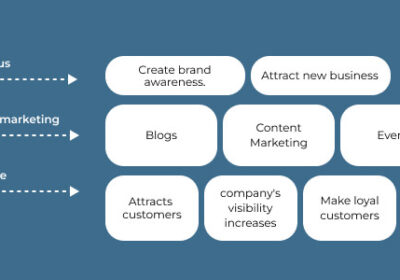Eight Marketing Strategies An Event Management Business Can Adopt To Ensure Maximum Attendance
The success of any event for any event management business lies in its ability to attract a large and engaged audience, and this begins with a well-executed marketing strategy. The perfect blend of creativity, innovation, and practicality can make all the difference in maximizing attendance at your client’s next event.
Today, we will explore some effective event marketing strategies that help. Event management businesses can adopt these strategies to ensure maximum attendance, kicking off with mastering the logistics of outdoor events, which present unique challenges and opportunities for planners.
So, sit back, relax, and prepare to be inspired as we dive into these proven strategies. They will transform your event marketing game for sure. Keep reading.
Outdoor Logistics
Outdoor events require additional planning and coordination to ensure a seamless experience for attendees, especially in a location like Oregon, known for its picturesque landscapes and diverse natural settings. The state boasts over 361 state parks, several resorts, and hotels with outdoor venues, providing ample options to organize outdoor events.
One of the first things to consider is choosing the perfect location within Oregon that is accessible and convenient—factor in public transportation options, parking availability, and proximity to local amenities. For instance, selecting a venue in Portland, the largest city in Oregon, can provide easy access to a larger audience while offering stunning backdrops for your event. As an event management and planning business, you must ensure maximum client attendance by strategically selecting locations catering to their specific needs. A vital aspect of outdoor event planning is providing ample space for all attendees, including seating arrangements and capacity for standing-room events. Another key logistic element to consider is the availability of power sources, lighting, and restroom facilities. Event management and planning companies often require temporary solutions to cater to these needs. For instance, partnering with a porta-potty rental company serving Oregon can be an invaluable resource for event planners, providing clean and reliable restroom facilities that cater to all attendees’ needs.
Harnessing the Power of Social Media
In today’s digital age, social media has become an indispensable tool for event marketing. Being an event management and planning company, you should leverage social media platforms to market your clients’ events. Start by creating captivating visuals and engaging posts that resonate with your target audience. Encourage users to share content using specific hashtags and promote user-generated content that showcases the excitement and anticipation surrounding your event. Influencer marketing can further amplify your message, reaching new audiences and driving attendance. Partner with influencers who align with your event’s values and goals, and collaborate on content that piques interest and generates buzz. Contests and giveaways hosted by influencers can also boost engagement and drive registrations.
Crafting a Compelling Event Story
A compelling event story can capture the imagination of potential attendees and create an emotional connection. Build anticipation by sharing teasers and previews of unique experiences offered at the event. Showcase speakers, performers, and interactive elements that set your event apart from the competition, enticing people to attend. Dive into the backgrounds and stories of your featured guests, illustrating how their expertise and passions align with the event’s theme. Use powerful imagery, engaging videos, and well-crafted narratives to evoke emotions and demonstrate the transformative potential of your event. By painting a vivid picture of the atmosphere, energy, and value that attendees can expect, you’ll inspire them to commit to your event and eagerly await the memorable experiences in store.
Utilizing Data-Driven Approach
Determine your target audience by evaluating demographics, interests, and past event data. Once you understand who would make up an ideal attendee for your event, you can create tailored marketing campaigns that resonate with them directly. Segment your audience so that your message and offers address their needs and preferences. Leverage tools and analytics platforms to gain insight into their online behavior, content preferences, and engagement patterns. Use this data to create your marketing strategies, identify channels, and craft messages and creative approaches with the most significant impact. Increase event visibility, appeal, and attendance by refining campaigns based on real-world data and continuously optimizing efforts.
Early Bird Incentives And Limited-Time Offers
Encourage prompt registrations with early bird incentives and limited-time offers. Create a sense of urgency by offering tiers of rewards and exclusive benefits that decrease in value as time goes on. This strategy can drive early commitments and foster excitement around your event. Consider implementing tiered pricing, VIP packages, or unique add-ons that enhance the attendee experience, such as backstage passes or exclusive workshops. Promote these incentives through social media, email marketing, and advertising, clearly communicating deadlines and the limited availability of these offers. By incentivizing early action, you’ll secure attendees and create a buzz around your event that can drive further interest and registrations.
Strategic Partnerships and Sponsorships
Collaborate with like-minded organizations to reach new audiences and expand your event’s reach. Cross-promotion opportunities and mutually beneficial arrangements can increase attendance while strengthening your event’s reputation. Sponsorships can enhance your event’s appeal, providing additional resources and support. Seek partners and sponsors whose values, goals, and target audiences align with your own, ensuring a synergistic relationship that benefits both parties. Jointly create content, promotional materials, and experiences showcasing the best of both brands, fostering collaboration and excitement among potential attendees. Additionally, leverage the networks and reach of your partners and sponsors to amplify your marketing efforts, increasing the visibility and credibility of your event.
Engaging Email Marketing
Craft attention-grabbing subject lines and utilize personalization and dynamic content in your email marketing campaigns. It will help keep your event at the forefront of your subscribers’ minds. Implement email automation to send timely updates and reminders, ensuring your audience stays informed and engaged as the event approaches. Go beyond simple personalization by incorporating relevant content and offers based on each subscriber’s interests, location, and engagement history. Use eye-catching visuals, persuasive copy, and clear calls to action to encourage recipients to register, share, or engage further with your event. Test and optimize your email campaigns, analyzing open rates, click-through rates, and conversions to identify the most effective tactics and messaging.
Post-Event Follow-Up and Retention
After the event, capture highlights and testimonials to showcase the success and impact of your event. Encourage attendees to provide feedback and reviews, which can be invaluable for refining future marketing strategies. Foster a sense of community by engaging with attendees post-event, building lasting relationships that will encourage them to attend future events. Share photos, videos, and stories from the event on social media, tagging attendees and using event-specific hashtags to spark conversation and reminiscence. Send personalized follow-up emails to attendees, expressing gratitude for their participation and inviting them to share their experiences and feedback. By nurturing these relationships and demonstrating genuine interest in their feedback, you’ll foster a loyal community that will eagerly anticipate and support your future events.
Conclusion
Maximizing attendance at your event requires a multifaceted approach that combines creativity, innovation, and practicality. By mastering the logistics of outdoor events, harnessing the power of social media, crafting a compelling event story, utilizing data-driven targeting, offering early bird incentives, forming strategic partnerships, engaging in email marketing, and following up with attendees post-event, you can create memorable experiences that attract large and engaged audiences. Remember, the key to success lies in adapting and evolving your event marketing strategies based on your unique goals and objectives.
Read Also:



